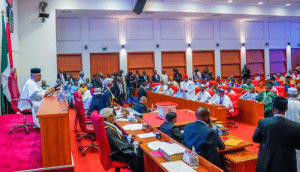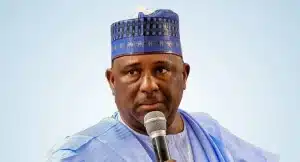The Minister of Finance and Coordinating Minister of the Economy, Wale Edun, has outlined a plan aimed at reducing Nigeria’s reliance on food imports.
Speaking at a press conference in Abuja, ahead of the country’s 64th Independence Day celebration, Edun emphasized that increasing domestic agricultural production and enhancing food security is central to the government’s economic recovery strategy.
Edun stated firmly, “Nigeria should not be importing food,” highlighting the government’s vision of achieving self-sufficiency in food production.
He described the heavy reliance on imports as unsustainable and stressed that the country’s future lies in growing its own food.
The government plans to support small-scale farmers by providing essential agricultural inputs such as seeds and fertilizers.
Through initiatives like the Nigerian Agricultural Growth Scheme, the administration seeks to enhance both wet and dry season harvests.
This will not only reduce short-term reliance on food imports but also increase agricultural productivity in the long term.
To address the current food market instability, the government has temporarily allowed maize and wheat imports. However, Edun stressed that this must be carefully managed to prevent harming local farming efforts.
“It is critical that we do not disrupt domestic production of food. It is critical that we do not disrupt farming in Nigeria by flooding the market with imports,” Edun cautioned, reiterating the government’s commitment to ensuring that local farmers are protected and incentivized.
This shift towards reducing food imports, Edun emphasized, is a crucial step towards Nigeria’s long-term economic independence and food security.
“This is not where we should be,” he said, referring to the nation’s current reliance on imported food.
The government’s strategy aims to move Nigeria closer to achieving self-sufficiency in agriculture, a key factor in strengthening the economy.
Edun’s comments come at a time when Nigeria is facing rising food prices and an underperforming agricultural sector that struggles to meet global standards.
The government’s long-term goal is to significantly increase agricultural productivity by improving the quality of local seedlings and adopting better farming techniques.
This push for agricultural growth is part of a broader economic reform agenda, which also includes addressing the effects of the recent removal of fuel subsidies.
The post Nigeria Should Not Be Importing Food – Edun appeared first on Naija News.







